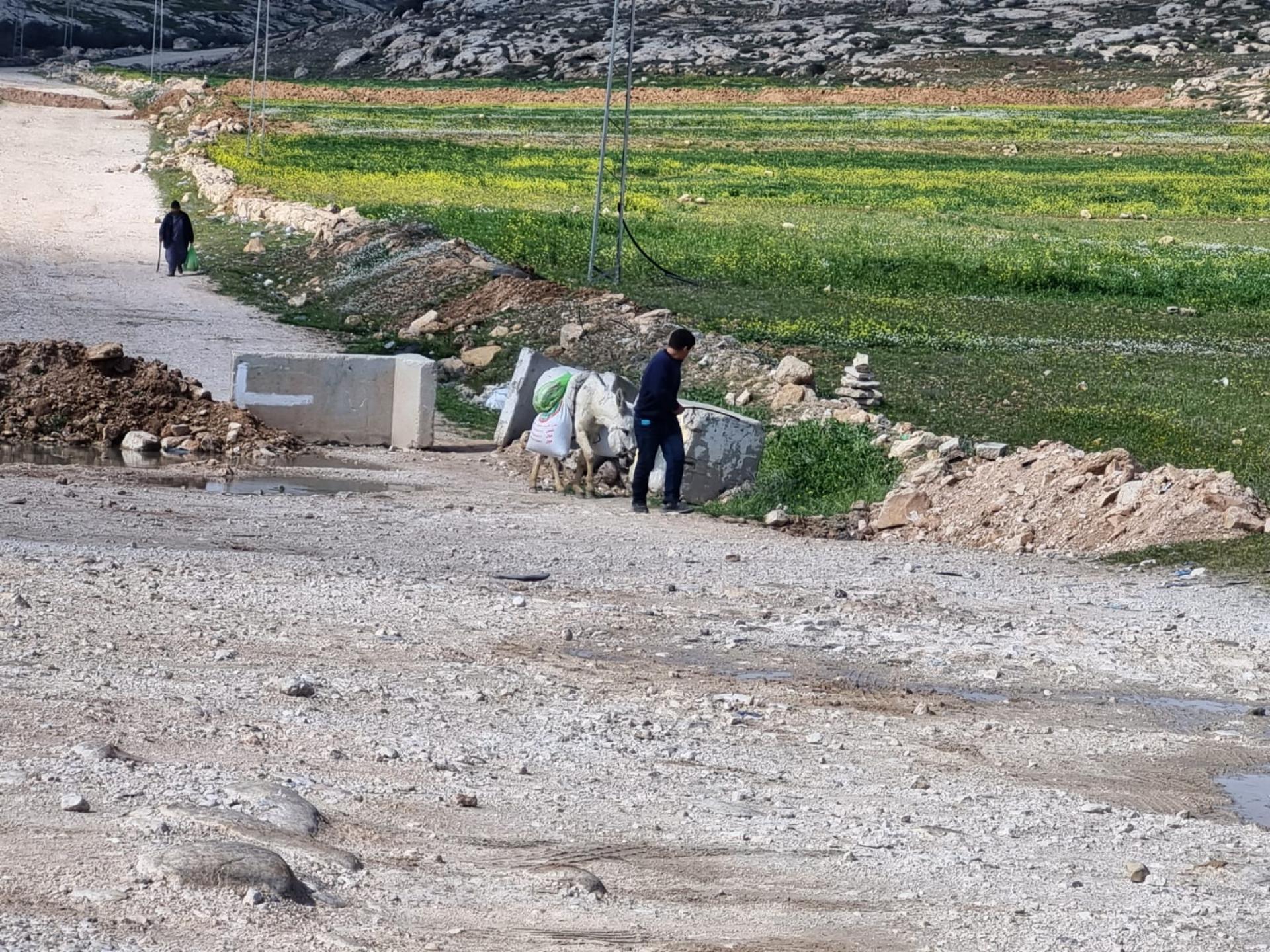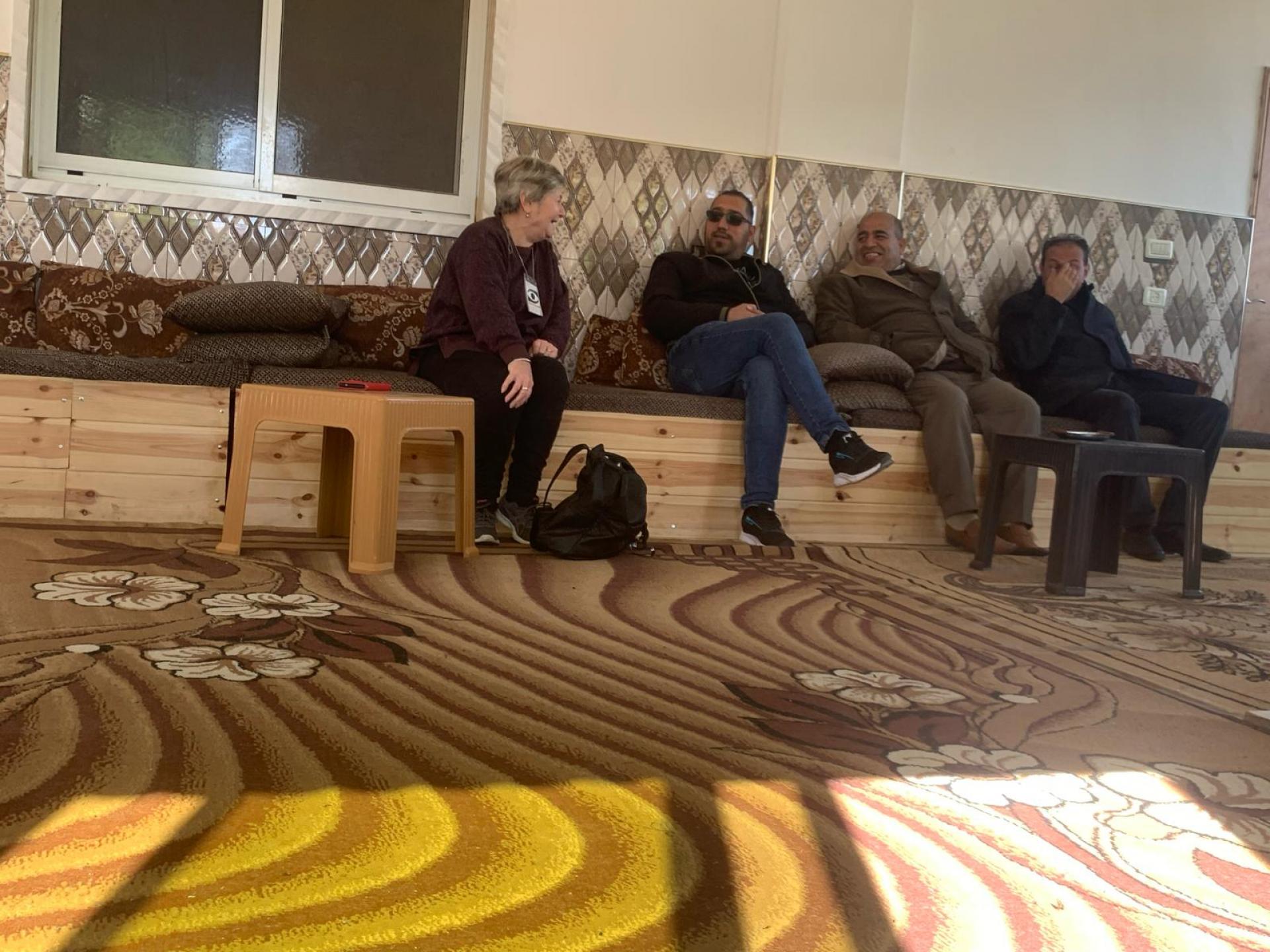At-Tuwani – visiting a wounded friend who was shot by settlers
This time we went to At-Tuwani in Masafer Yatta to visit Zakaria Adra, whom we have already visited several times.
A brief reminder of the incident in which Zakaria was injured on 13.10.23:
On that day, Zacharia left the mosque in the village and a settler from the Havat Maon, accompanied by a soldier, shot Zakaria from point blank range with a deadly bullet that badly wounded him in the stomach. All this in the middle of the day. Zakaria was rushed to the hospital and spent most of the time in intensive care.
At the beginning of January he was released to his home, surrounded by family members who take care of him with devotion. Zacharia was on a check-up at the hospital in Yatta, so we didn't meet him. At the same time as our arrival, a transit of the Palestinian Ministry of Education with a number of officials parked next to us.
We were invited by Nasser Adra and Naim, Zacharia's father, to sit in the family's shig[N1] (guest room).
Their role: supervision of the schools in Masafer Yatta and they are updated with everything that happens in all the schools.
Jibrin, one of the inspectors, speaks Hebrew, and he talks about the problems in the education system in the region, which we have already reported on in many reports.
Classes since October 7th have been irregular and are actually taking place with great difficulty. The two main reasons: the settlers have increased their presence everywhere and many parents are not willing to risk it. Another reason, the blocking of entrances and exits in all the occupied territories, with earthen ramparts, cement barriers and yellow iron gates . These barriers do not allow teachers to reach the schools. Sometimes classes are held on Zoom, but this is almost impossible. The internet is often not available, and the mental stress and conditions are not suitable either.
. These barriers do not allow teachers to reach the schools. Sometimes classes are held on Zoom, but this is almost impossible. The internet is often not available, and the mental stress and conditions are not suitable either.
As an example, Jibrin says that the children of Tuba village, who study in At-Tuwani, do not come to school at all. Tuba children have been accompanied by soldiers or human rights activists for years. For months there has been no escort and no schooling.
Another example, a school that opened a month ago in Dirat, a village on road 356. The school is intended for children in grades 1-4. A few days ago, they received a demolition order.
Educating Palestinian children is something that has not been allowed for years. A number of schools have already been destroyed and we have reported on this. (Zanuta, and Khirbet as-Safai).
We asked to be updated if there is anything new with the demolition order.
Nasser Adra tells of soldiers who demanded a shepherd grazing at the edge of the village, near Jum’a's mother's house, to leave that area. Muhammad Rabai, the head of the At-Tuwani Council, intervened in favour of the shepherd and was arrested for 8 days and held in the Ofer prison. He was released to his home on a bail of NIS 5,000.
When we left, we saw Fadel Hamamda from Mufaraqa riding his donkey on his way to buy at Yatta, which in the not-so-distant past he did with his tractor, much faster and more comfortably. The problem was that they might confiscate his tractor and he can't afford that.
In every visit, we are saddened by what the occupation does to people who just want to live their lives in peace.


